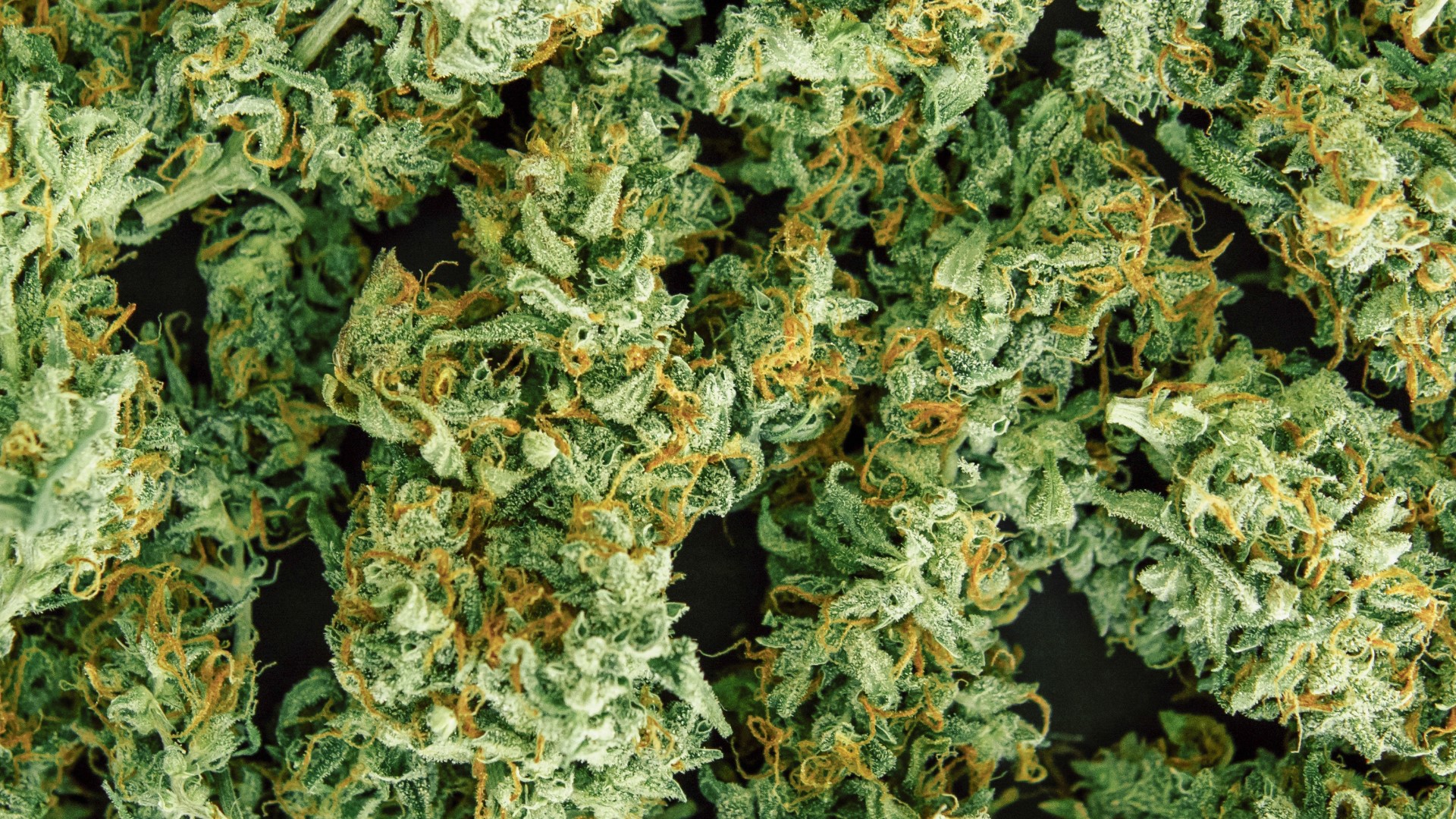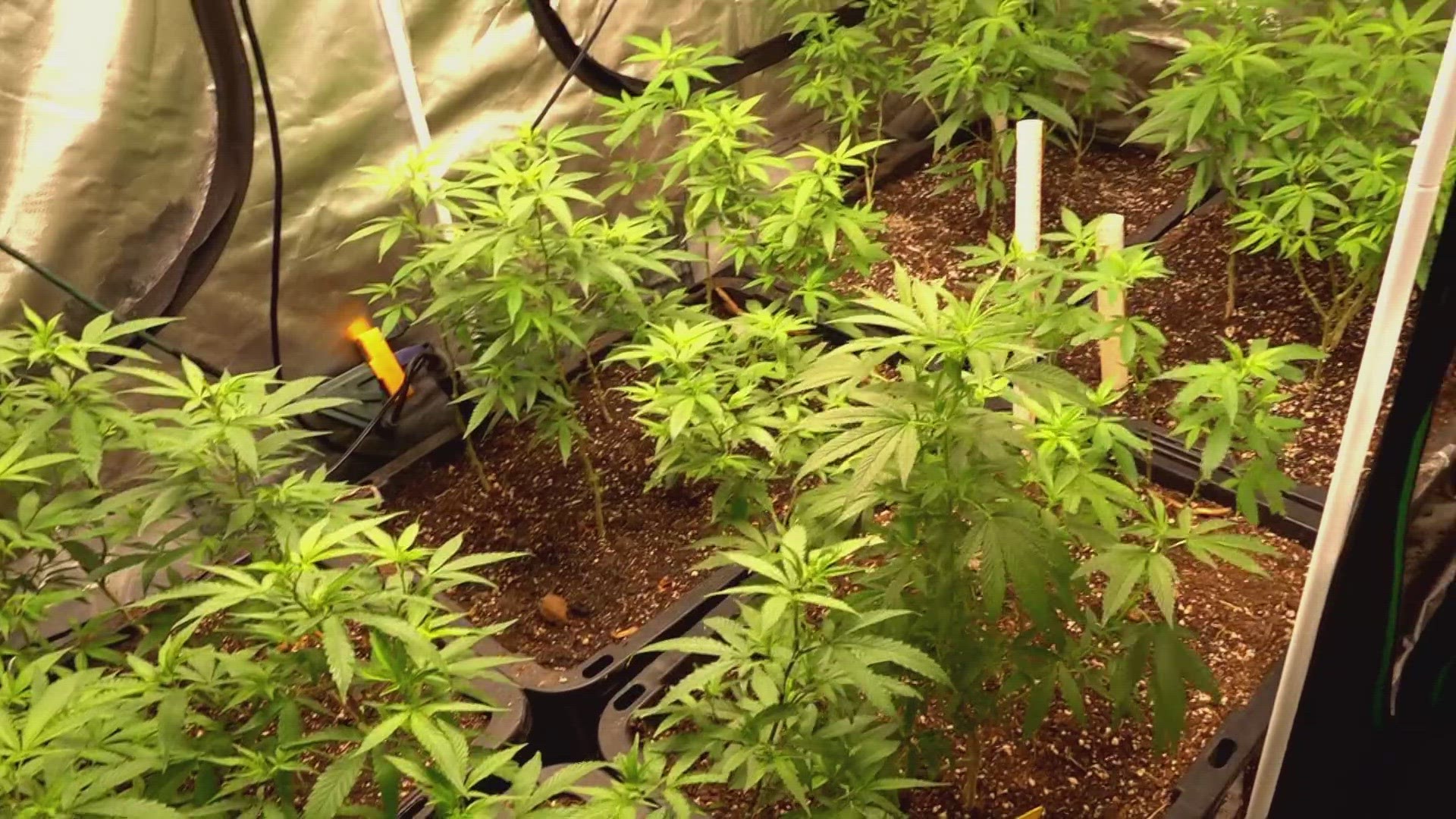THCA in Tennessee: A 'legalized high' could soon end
Hemp store owners are fighting back against proposed rules from the Department of Agriculture.

Guidelines proposed by the Tennessee Department of Agriculture, following a new state law, could change the way people buy and sell hemp in the state.
"Folks are just typically looking for relief," said Andy Chesney, owner of the Hemp House in West Knoxville. "We have heard just so many, so many things about the relief that cannabis brings to people and so it's just great."
Chesney sees around 100 customers a week. He sells hemp-derived products, which Chesney says, offer his customers relief.
Ever since hemp was legalized, thanks to the 2018 Farm Bill, stores like Chesney's have popped up all around the region.
However, Tennessee legislators are trying to walk back a "loophole" from the Farm Bill, and store owners, like Chesney, are protesting.
What is THCA? A specific cannabinoid at the center of this "loophole."
The cannabis plant contains chemicals called cannabinoids. There are different types of cannabinoids, like THC and CBD.
Both marijuana and hemp come from the cannabis plant. The difference is, hemp has a "low amount" (0.3% or less) of THC while marijuana has a "high amount" (greater than 0.3%) of THC.
THCA, the acidic form of THC, is found in raw and unheated cannabis. When it's heated, it becomes THC—the chemical that makes consumers feel high.
Since the difference between marijuana and hemp is determined by the amount of THC and not THCA, plants can have very high amounts of THCA and still be considered hemp, according to Tennessee's state law.
Chesney said customers could buy hemp, made up mainly of THCA, smoke it and feel the same high they would feel if they bought marijuana.
"Total THC" Proposed rules might stop THCA in its tracks.
In July 2023, SB0378 was passed to more strictly regulate the hemp industry in the state. The law gave the regulatory authority to the Tennessee Department of Agriculture.
The agency then proposed rules regarding the regulation of the hemp industry.
The proposed rules use "Total THC" to differentiate hemp and marijuana. Stores would have to make sure the products they are selling do not contain a "Total THC" amount of more than 0.3%.
If the proposed rules become final, people would no longer be able to buy hemp with large amounts of THCA because it has the potential to become THC.
Knoxville Senator Richard Briggs, who sponsored the bill, said the law was intended for the state to be able to regulate the growing, manufacturing and sale of Delta-8—a different cannabinoid that can also get people high.
Briggs only mentioned Delta-8 in his interview with WBIR and said he wasn't familiar with the anger surrounding the new rules involving "Total THC."
"I know there's been—because we've received some emails—there's been some controversy about The Department of Agriculture the way they're enforcing some of this," Briggs said. "I don't know the details about all of what all the hemp farmers and some of the other people and maybe even the retailers are complaining about."
The retired physician has long been against the legalization of marijuana.
"There's growing evidence that if people under the age of 25 are using marijuana on a regular basis, that may activate a latent tendency for addictions," Briggs said. "I'm not in favor of the state approving a substance that may be very, very harmful and have so many unintended consequences."
What's next? Where does Tennessee's cannabis industry go from here?
On Feb. 6, the Tennessee Department of Agriculture held a public hearing on the proposed rules. The Tennessee Growers Coalition said between 200 to 300 people were in attendance.
Chesney went to the state capitol to participate in the public hearing.
"By eliminating THC, you're not really gaining the full effects of the plant, or the full benefits of it," Chesney said. "And so from a consumer perspective, the frustrating part is that what seems to be considered by the powers that be in Tennessee, is this getting high and regulating people who are attempting to get high."
Department of Agriculture public information officer Kim Doddridge said the department is in the process of reviewing public comments and developing its final rules.
"The record, responses, and final rule coming from the February 6 hearing will be submitted to the TN Attorney General’s Office," Doddridge said. "Their office will review the final rule for legality and constitutionality, and if approved, the final rule will be filed with the Secretary of State’s Office and will be effective 90 days later."
Doddridge said the law requires the Tennessee Department of Agriculture to have the rules in place by July 1.


